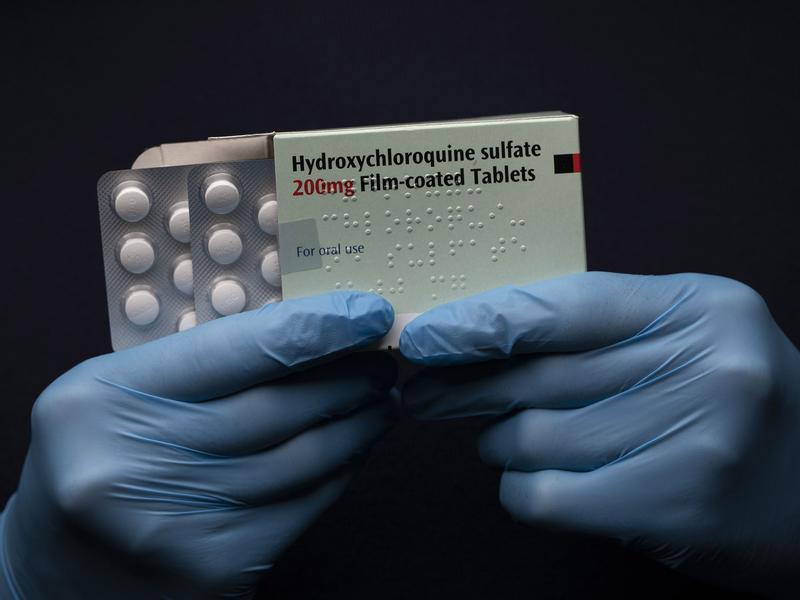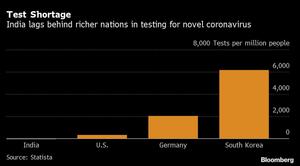 In this photo illustration a pack of Hydroxychloroquine Sulfate medication is held up on March 26, 2020 in London, United Kingdom. (JOHN PHILLIPS / GETTY IMAGES VIA BLOOMBERG)
In this photo illustration a pack of Hydroxychloroquine Sulfate medication is held up on March 26, 2020 in London, United Kingdom. (JOHN PHILLIPS / GETTY IMAGES VIA BLOOMBERG)
India banned all exports of hydroxychloroquine, a malaria drug that President Donald Trump has repeatedly touted as a “game changer” in the fight against Covid-19.
Exports of the drug and its formulations are prohibited “without any exceptions” and with immediate effect, India’s Directorate General of Foreign Trade said in an April 4 order on its website.
The ban reflects India’s rising concern over the rapid spread of the coronavirus, with risks of community spread rising in the country of 1.3 billion people
The trade regulator had last month restricted overseas shipments of the drug, allowing only limited exceptions such as on humanitarian grounds and for meeting prior commitments.
At a press conference on Saturday, Trump said he spoke to Indian Prime Minister Narendra Modi and appealed for the release of shipments US has already ordered. India is giving his request “serious consideration,” he said.
READ MORE: Trump pushes an unproven drug, and patients stock up
Trump also said that the federal government was stockpiling millions of doses of the drug to make it available for coronavirus patients.
There’s no conclusive scientific evidence that hydroxychloroquine can treat the infection from the novel pathogen, and it hasn’t been approved by the Food and Drug Administration in the US to treat COVID-19.
Trump has been undeterred, though. “What do you have to lose? Take it,” the president said at Saturday’s briefing. “I really think they should take it. But it’s their choice.”
ALSO READ: Nigeria has chloroquine poisonings after Trump praised drug

The ban reflects India’s rising concern over the rapid spread of the coronavirus, with risks of community spread rising in the country of 1.3 billion people.
India has recorded 3,374 positive cases so far and has lost 77 lives, according to the federal health ministry. The country has struggled to keep people indoors during a three-week lockdown that started March 25, raising fears of accelerating spread.



